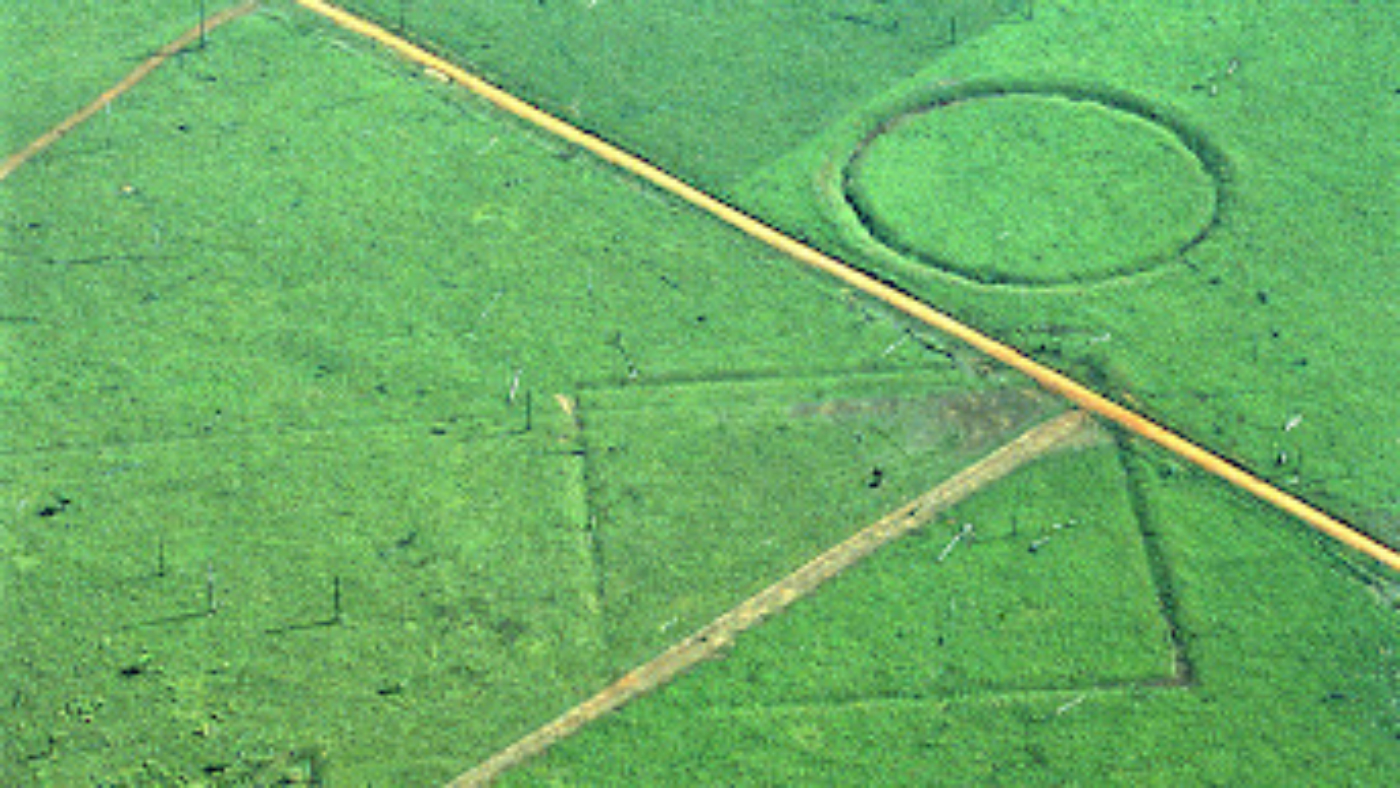Mysteries of 'Amazon Stonehenge' revealed
New research indicates that ancient people practised large-scale deforestation to make their mark within the Brazilian rainforest

A free daily email with the biggest news stories of the day – and the best features from TheWeek.com
You are now subscribed
Your newsletter sign-up was successful
Ancient Amazon people cleared swathes of forest to build enormous earthworks similar to those at Stonehenge, researchers have discovered.
Deforestation has uncovered traces of more than 450 earthworks in the western state of Acre that were previously concealed by a dense canopy of trees.
Around 1,200BC, the forest's inhabitants began creating massive geometric shapes in the forest floor using ditches up to 36ft wide and 13ft deep, a style of earthworks known as "geoglyphs".
The Week
Escape your echo chamber. Get the facts behind the news, plus analysis from multiple perspectives.

Sign up for The Week's Free Newsletters
From our morning news briefing to a weekly Good News Newsletter, get the best of The Week delivered directly to your inbox.
From our morning news briefing to a weekly Good News Newsletter, get the best of The Week delivered directly to your inbox.
Although the ditches at Stonehenge pre-date those in Acre by about 2,500 years, researcher Dr Jennifer Watling believes these new finds served a similar purpose in Amazonian society.
"It is likely that the geoglyphs were used for similar functions to the Neolithic causewayed enclosures, i.e., public gathering, ritual sites," she told the Daily Telegraph.
Watling's team used cutting-edge technology to analyse soil samples, enabling them to reconstruct 6,000 years of plant life in two of the enclosures.
"They found that humans heavily altered bamboo forests for millennia and clearings were made to build the geoglyphs," the Telegraph reports.
A free daily email with the biggest news stories of the day – and the best features from TheWeek.com
Charcoal traces in the samples indicated the Amazonians cleared space for the earthworks by setting fires. The analysis also found that after humans began to actively manage the landscape, palms replaced bamboo as the predominant tree in the forest.
This supports the theory that Amazonian rainforests "once thought to be pristine wildernesses" were actively managed by their inhabitants prior to contact with Europeans, says Popular Archaeology, "challenging the apparent vulnerability of Amazonian forests to human land use".
"There's been a very big debate circling for decades now about how pristine or man-made the Amazonian forests are," said Dr Watling. However, she stressed that the discovery "should not be cited as justification for the destructive, unsustainable land-use practised today".
Instead, it should "highlight the ingenuity of past subsistence regimes" and "the importance of indigenous knowledge for finding more sustainable land-use alternatives".
-
 How to Get to Heaven from Belfast: a ‘highly entertaining ride’
How to Get to Heaven from Belfast: a ‘highly entertaining ride’The Week Recommends Mystery-comedy from the creator of Derry Girls should be ‘your new binge-watch’
-
 The 8 best TV shows of the 1960s
The 8 best TV shows of the 1960sThe standout shows of this decade take viewers from outer space to the Wild West
-
 Microdramas are booming
Microdramas are boomingUnder the radar Scroll to watch a whole movie
-
 Epstein files topple law CEO, roil UK government
Epstein files topple law CEO, roil UK governmentSpeed Read Peter Mandelson, Britain’s former ambassador to the US, is caught up in the scandal
-
 Iran and US prepare to meet after skirmishes
Iran and US prepare to meet after skirmishesSpeed Read The incident comes amid heightened tensions in the Middle East
-
 Israel retrieves final hostage’s body from Gaza
Israel retrieves final hostage’s body from GazaSpeed Read The 24-year-old police officer was killed during the initial Hamas attack
-
 China’s Xi targets top general in growing purge
China’s Xi targets top general in growing purgeSpeed Read Zhang Youxia is being investigated over ‘grave violations’ of the law
-
 Panama and Canada are negotiating over a crucial copper mine
Panama and Canada are negotiating over a crucial copper mineIn the Spotlight Panama is set to make a final decision on the mine this summer
-
 Why Greenland’s natural resources are nearly impossible to mine
Why Greenland’s natural resources are nearly impossible to mineThe Explainer The country’s natural landscape makes the task extremely difficult
-
 Iran cuts internet as protests escalate
Iran cuts internet as protests escalateSpeed Reada Government buildings across the country have been set on fire
-
 US nabs ‘shadow’ tanker claimed by Russia
US nabs ‘shadow’ tanker claimed by RussiaSpeed Read The ship was one of two vessels seized by the US military